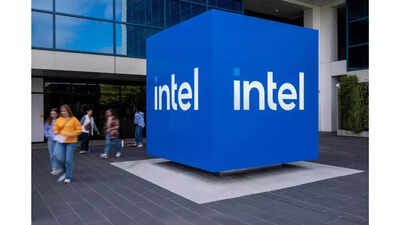US government’s Intel investment comes under the law that Donald Trump called ‘Horrible, Horrible thing’

In what is being widely seen as highly unusual and direct intervention into the private sector, the United States government has officially acquired a 10% stake in struggling chipmaker Intel, an agreement announced by President Donald Trump last week. The deal, which makes the government one of Intel’s largest shareholders, is being funded not with new money, but by converting previously awarded grants into equity. In a post on his social network Truth Social, President Trump declared that “The United States paid nothing for these shares,” and hailed the move as “a great Deal for America and, also, a great Deal for INTEL.”The $8.9 billion investment is comprised of $5.7 billion from the CHIPS and Science Act — a law Trump has previously criticized—and an additional $3.2 billion from the Secure Enclave program. Trump has been critical of the CHIPS Act, calling it a “horrible, horrible thing” and calling on House Speaker Mike Johnson to “get rid” of it. “You should get rid of the CHIP Act,” he told Speaker Mike Johnson as some lawmakers applauded.In a regulatory filing in June, Intel said that while it had already received $2.2 billion in CHIPS Act funding, it had subsequently requested an additional $850 million in reimbursement that the government had not yet paid.
Donald Trump takes a U-turn on Intel’s CEO
The announcement follows a remarkable shift in the administration’s stance toward Intel’s recently appointed CEO, Lip-Bu Tan. Earlier this month, Trump had publicly called for Tan’s immediate resignation, citing concerns over his past investments in Chinese technology firms. However, following a meeting between the two, Trump’s tone changed dramatically. On Friday, he praised Tan as the “Highly Respected Chief Executive Officer” who “negotiated this deal” with him. For his part, Tan expressed gratitude for the administration’s “confidence” in the company.The agreement specifies that the government’s stake will be “passive,” with no board seats or other governance rights, an important point for Intel as it seeks to maintain control over its operations. However, the deal does include a five-year warrant that would give the government the option to acquire an additional 5% of Intel’s common shares if the company sells more than 49% of its foundry business. The government’s shares were acquired at a price of $20.47 per share, a discount to the market price. The stock rallied by more than 5% on Friday following the news.
Legal challenges abound for Trump’s investment in Intel
The deal is already facing scrutiny from legal experts who question whether the CHIPS Act allows for the conversion of grants into equity, potentially opening the agreement to legal challenges. While some analysts believe the government’s backing could help Intel stabilize its finances and advance its foundry business—the contract chip manufacturing unit that has been a source of recent struggles—others remain skeptical. Experts have noted that a cash infusion alone will not solve Intel’s core challenges in a highly competitive market dominated by rivals like Nvidia and AMD. The company’s stock has faced significant pressure, with a reported $18.8 billion loss in 2024.





